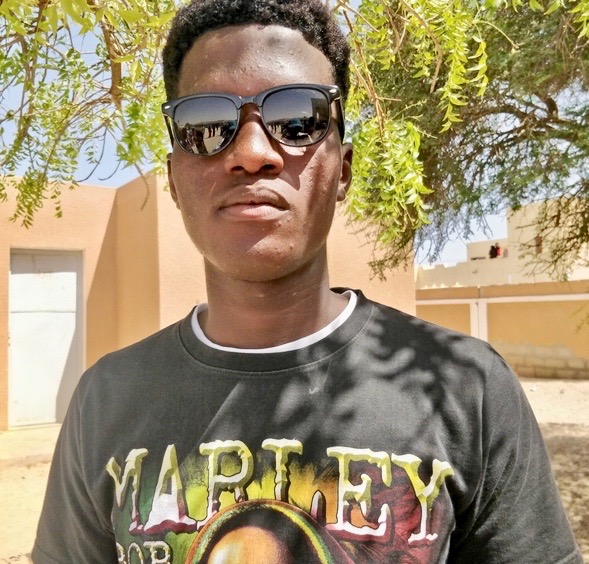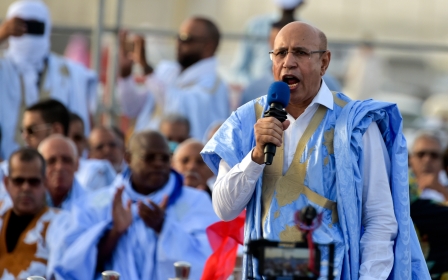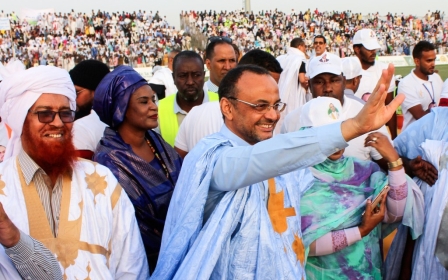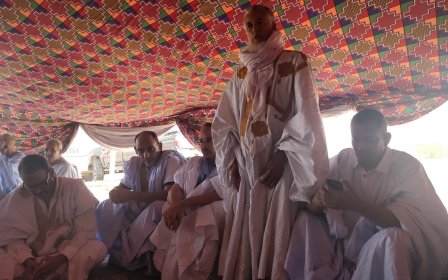Mauritanians vote for president, with insider Ghazouani heavily tipped to win
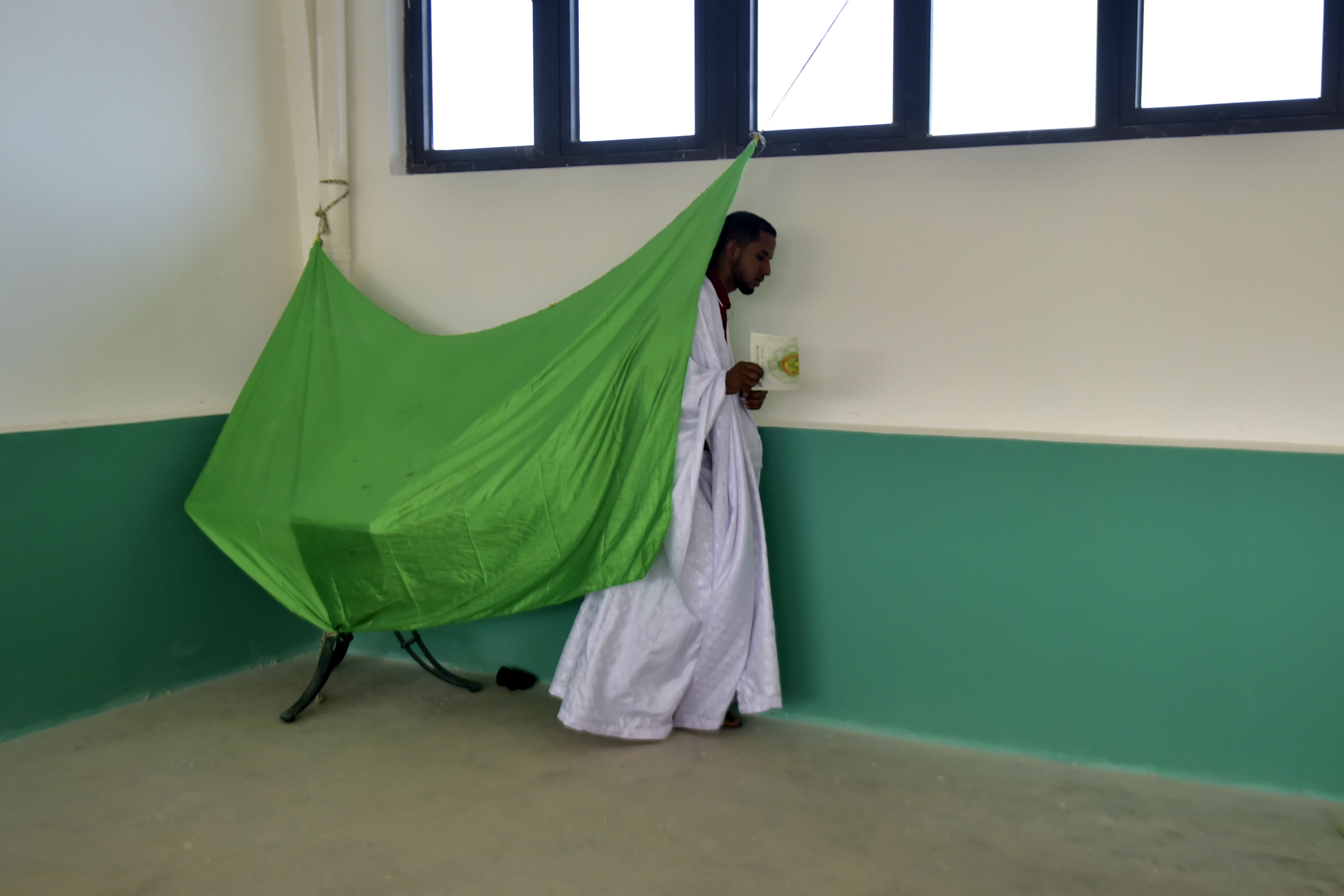
For the first time since Mauritania's independence, its citizens voted on Saturday for a successor to a democratically elected president, though a government insider campaigning on a message of continuity was heavily tipped to win.
Polls opened at 7am (07:00 GMT) in the election to replace President Mohammed Ould Abdel Aziz, 62, who since seizing power in a 2008 coup has positioned himself as an ally of the West in the fight against militant Islamists. He has served the maximum of two five-year elected terms.
The front-runner is his chosen successor, former defence minister Mohamed Ould Ghazouani, 62, one of the masterminds behind the military coup that brought Abdel Aziz to power.
Located on the northwest African coast and bordered to the east by the Sahara Desert, the country of fewer than five million people gained independence from colonial power France in 1960.
Abdel Aziz may maintain significant influence behind the scenes. He said on Thursday that he had not ruled out running again in five years when his term limits would reset.
Gilles Yabi, the founder of West African think-tank WATHI, said Ghazouani was the clear favourite and would likely continue to rule in Abdel Aziz's mould, but that he could still surprise.
"Ghazouani is someone who is very discreet. It could well happen that the change is not merely cosmetic," Yabi said.
Five candidates besides Ghazouani are on the ballot.
Ghazouani’s main contender is former prime minister Sidi Mohamed Ould Boubacar, who is backed by the main opposition party, Tawassul, a local offshoot of the Muslim Brotherhood.
Anti-slavery activist Biram Dah Abeid is an outlier but has some support among the country’s poorer black communities.
Boubacar and another opposition candidate, Mohamed Ould Maouloud, told reporters at their polling places that they were concerned about potential fraud.
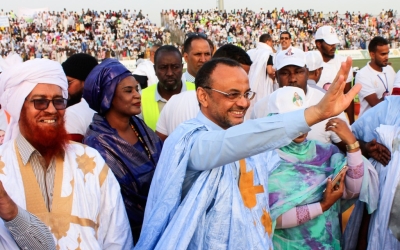
They pointed to the absence of international observers and the printing of ballot papers by a company with ties to the ruling party.
Election authorities said there were no political considerations in awarding the contract.
Ghazouani has campaigned on the progress made under Abdel Aziz on economic and security issues.
Gross domestic product is growing and will receive an extra boost when a large offshore gas field starts producing early next decade.
Tourists are also starting to return for desert tours after years of staying away following a series of kidnappings in 2009.
Still, the opposition candidates have tried to tap into dissatisfaction among young people over stagnating salaries and poor health care.
Women wearing bright shawls and men dressed in traditional attire formed orderly queues this morning in the dusty playground of a school turned voting station in Riyad, a suburb of Nouakchott.
Seated on the floor and wearing a deep blue hijab, Salma, 50, said she was voting for Ghazouani. “There is a good chance that Ghazouani will bring change,” she said in the local Arabic dialect. “I don’t know who the best candidate is. All are sons of Mauritania,” she said, adding that she was encouraged to vote for the front-runner by her boss.
Guethie Ly, 41, said she would cast a vote for Kane Hamidou Baba, a candidate from Mauritania’s African community who has put coexistence between communities and alleviating poverty at the heart of his campaign.
“He wants everyone to have freedoms and is the more intellectual of the candidates,” she says in broken English, standing outside a classroom used as a voting station.
“We’ve had the same system from the first president until now; it's the same system of government.” She added: “The government system is not good, it favours one ethnic group over the others.”
As the Sahara sun rises high and begins to beat down, a hubbub stirs at the school gates as presidential candidate Biram Dah Abeid appears dressed in white, surrounded by a throng of supporters who reach out to snap him on their camera phones.
Tamba, 26, said he supported Biram because he was “always on the side of the people and knew how to help solve their problems.” He said one of the biggest problem facing Mauritanians was the quality of schools. “Education is [a] big problem, both colleges and schools.”
Wearing a Bob Marley T-shirt, student Djibril Amadou Da, 19, said he was backing Kane Hamidou Baba because he promised to help the youth.
“The first problem is jobs. If you don’t have a sponsor to help you in the government, you cannot access work.”
Polls are scheduled to close at 7pm local time. If no candidate receives more than 50 percent of the votes, the election will go to a second round next month.
- With additional reporting by Reuters
Middle East Eye delivers independent and unrivalled coverage and analysis of the Middle East, North Africa and beyond. To learn more about republishing this content and the associated fees, please fill out this form. More about MEE can be found here.


